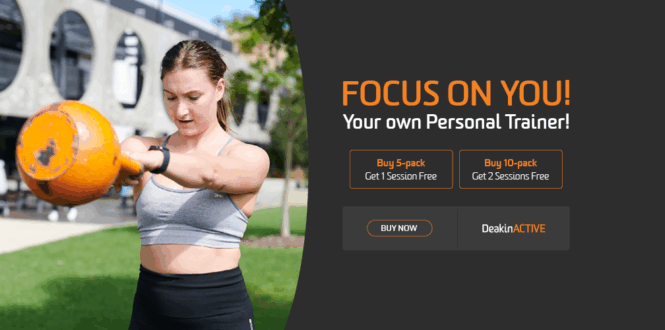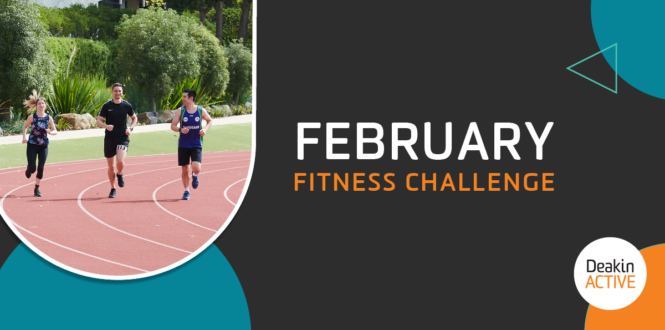
Positive changes you can make this Men's Health Week
We’re partway through Men’s Health Week (14–20 June), and we hope you’ve taken some time to think about how you manage your own health and wellbeing. If you missed it, check out Deakin’s recent blog, which highlights some concerning facts about men’s physical and mental health in Australia, and has some great advice from Hasan and Kamal, two of our student Wellbeing Ambassadors.
Recent studies have shown that Aussie men need to be more proactive about their health – from exercising regularly and eating well to seeking medical attention earlier and looking after their mental health. Deakin University talked to a couple of Deakin experts about some practical things you can do to feel good, both physically and mentally, and what student services are available.
Your physical health
One of the most obvious and important aspects of a healthy lifestyle is, of course, exercise. While many males find it easy to stay active, not all men exercise enough, or properly. Worryingly, inactive men are 60 percent more likely to suffer from depression than those who are active.
Sam Weston, who manages the DeakinACTIVE fitness centres at Waurn Ponds and Warrnambool, has some great ways that all students – and males in particular – can make exercise a regular and fun part of life:

- Be active most days: government physical activity guidelines state that adults aged 18–64 should be active nearly every day. Each week, you should do either 2.5 to 5 hours of moderate intensity physical activity (like a brisk walk, golf, mowing the lawn or swimming) or 1.25 to 2.5 hours of vigorous intensity physical activity (like jogging, aerobics, fast cycling, soccer or netball), or an equivalent combination.
- Get creative: find ways to incorporate exercise into your daily study routine. For example, if you’re listening to a recording or need to chat to someone about an assignment, why not put your headphones in and go for a walk?
- Eat well to support your lifestyle: one of the keys to supporting an active lifestyle is eating the right foods. Most males eat badly because once they become hungry they’ll go for the easiest option to fulfill their needs. Better meal preparation will lead to healthier options and help you control what goes into your body.
- Don’t compare yourself to others: one of the most common mistakes people, and especially guys, make when it comes to exercise is comparing themselves to others. Just because your exercise routine or goals may look different or be less intense doesn’t mean you’re doing it wrong, or not doing enough.
- Take advantage of Deakin’s fitness community: DeakinACTIVE supports students by creating an environment where everyone feels accepted and comfortable. Our fitness centres are places you want to go and train, so your exercise mindset changes from it being a task to it being fun. We help you to maintain good physical health through online and on-campus group classes, a variety of equipment, personal training, health consults, and general health and fitness tips and guides.
Your mental health
Sometimes it can be hard to identify when you’re struggling mentally or emotionally.
Karen Stuart, clinical psychologist and Manager of Deakin’s Counselling and Psychological Support (CAPS) service, says there are some physical and behavioural signs of anxiety or depression that are common in males.

These include:
- being short-tempered
- unexplained tightness in the chest, headaches
- sleep difficulties
- changes in appetite resulting in weight gain/loss
- loss of sex drive/performance
- avoiding family or social situations, or finding it hard to manage work/study/family responsibilities
- working obsessively without taking proper breaks
- becoming more controlling or abusive in relationships
- engaging in risk-taking behavior, such as gambling, unsafe sex, drinking more or taking drugs.
The good news is that men are likely to turn to their mates for help. Many also engage in positive coping strategies like eating healthily, exercising, using humour to reframe thoughts/feelings, doing something to help another person and spending time with a pet.
Unfortunately, however, men are still at greater risk of suicide, and they often don’t seek out professional help. One reason for this is the misconception that counselling just means talking about feelings or that seeking professional help makes you feel less ‘manly’. But while talking is one of the many strategies available, Karen says that Deakin’s counsellors are also solution-focused, offering practical advice and ways to relieve stress.
If you’ve been experiencing any of the above signs or feelings, or you just want to chat to someone in a safe and non-judgmental space, Karen encourages you to make a free and confidential CAPS telehealth appointment. Both male and female counsellors are available, so check out their profiles to see who you might be most comfortable working with.
You can also:
- visit our Ask Counselling blog to see what issues other students have been struggling with and for anonymous advice from Deakin counsellors
- make an appointment to see a nurse or doctor at our on-campus Deakin Medical Centres.
This article originally appeared in DeakinLife blog. The original article can be found here.

